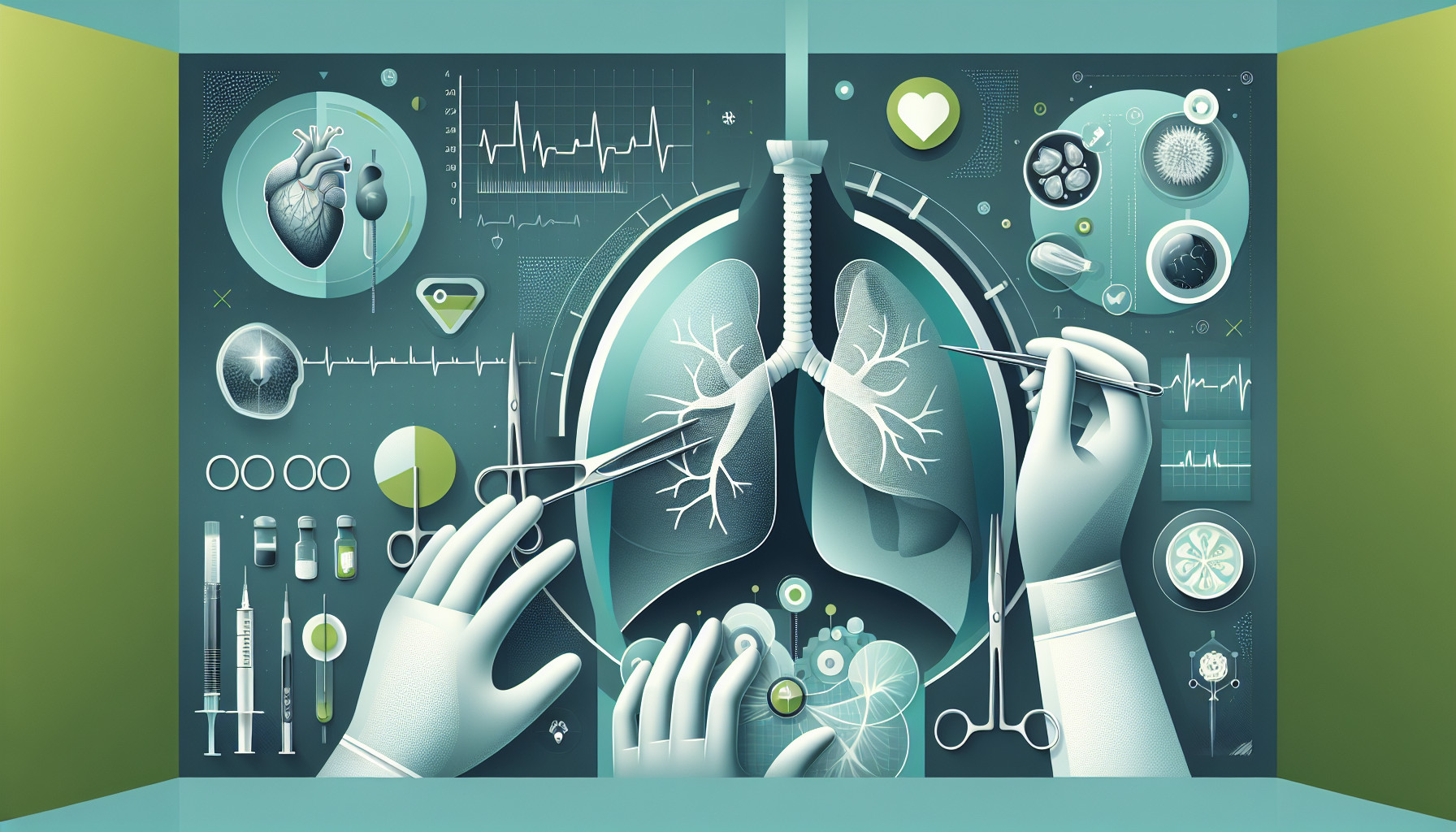Our Summary
The researchers wanted to understand what factors affect the health-related quality of life for people who are waiting for, or have received, a lung transplant. To do this, they collected information on the health and lifestyle of these patients from January 2021 to May 2022. They used a survey to measure their health-related quality of life and also considered their body mass index (a measure of body fat based on height and weight), frailty, and lung allocation score (a score that measures how urgently a patient needs a lung transplant).
They found that people who had received a lung transplant generally reported a better quality of life than those who were still waiting. However, those who had a higher body mass index or higher frailty score reported a lower quality of life. For those who had received a transplant, a higher body mass index or lung allocation score was associated with a lower quality of life.
The researchers suggest that interventions in the future should focus on these areas to improve the quality of life for people waiting for or who have received a lung transplant. This could include helping patients to maintain a healthy weight and managing their frailty and lung health.
FAQs
- What factors were found to affect the health-related quality of life for people waiting for or have received a lung transplant?
- How does a higher body mass index or lung allocation score impact the quality of life for patients who have had a lung transplant?
- What interventions do researchers suggest to improve the quality of life for people waiting for or who have received a lung transplant?
Doctor’s Tip
A doctor might advise a patient who is waiting for or has received a lung transplant to focus on maintaining a healthy weight, managing their frailty, and caring for their lung health to improve their quality of life. This could involve following a balanced diet, engaging in regular physical activity, and staying on top of their medication and therapy regimen. It’s important for patients to work closely with their healthcare team to address these areas and optimize their overall well-being post-transplant.
Suitable For
Patients who are typically recommended for a lung transplant are those with end-stage lung disease that cannot be effectively treated with other medical or surgical interventions. This includes individuals with conditions such as cystic fibrosis, idiopathic pulmonary fibrosis, chronic obstructive pulmonary disease (COPD), pulmonary hypertension, and bronchiectasis.
In general, candidates for lung transplant must meet certain criteria, including being in good overall health aside from their lung condition, having a strong support system in place, and not having any other significant medical conditions that would make them ineligible for surgery. Additionally, candidates must have a limited life expectancy without a transplant and be willing to commit to the necessary post-transplant care and lifestyle changes.
Patients who are experiencing severe symptoms such as shortness of breath, fatigue, and difficulty performing daily activities despite optimal medical management are also often considered for a lung transplant. Ultimately, the decision to recommend a lung transplant is made on a case-by-case basis by a multidisciplinary team of transplant specialists who consider the individual patient’s medical history, current health status, and potential benefits and risks of the procedure.
Timeline
Before lung transplant:
- Patient is diagnosed with a severe lung condition that cannot be managed with medication or other treatments
- Patient is referred to a transplant center for evaluation
- Patient undergoes a series of medical tests and evaluations to determine if they are a suitable candidate for a lung transplant
- Patient is placed on the waiting list for a donor lung
- Patient may experience worsening symptoms and decline in health while waiting for a transplant
After lung transplant:
- Patient undergoes the lung transplant surgery
- Patient spends time in the hospital recovering from the surgery
- Patient may experience complications or rejection of the new lung
- Patient undergoes rehabilitation and physical therapy to regain strength and function
- Patient is closely monitored by healthcare providers to ensure the success of the transplant
- Patient may need to take immunosuppressant medications for the rest of their life to prevent rejection of the new lung
- Patient may experience improvements in their lung function and quality of life post-transplant, but may still face challenges such as managing medications and preventing infections.
What to Ask Your Doctor
Some questions a patient should ask their doctor about lung transplant include:
- What is involved in the lung transplant process?
- What are the risks and potential complications of a lung transplant?
- How long is the recovery process after a lung transplant?
- Will I need to take immunosuppressant medications after the transplant?
- How often will I need to follow up with my transplant team after the surgery?
- Are there any lifestyle changes I should make before or after the transplant?
- How will a lung transplant affect my ability to exercise and engage in physical activity?
- What support services are available for lung transplant recipients?
- What can I expect in terms of my quality of life after a lung transplant?
- Are there any specific factors, such as body mass index or frailty, that may affect my outcomes after a lung transplant?
Reference
Authors: Fenton D, Diaz A, Nordgren R, Lysandrou M, Dolan D, Jablonski R, Tsui K, Song T, Madariaga MLL. Journal: Exp Clin Transplant. 2023 Jul;21(7):592-598. doi: 10.6002/ect.2023.0089. PMID: 37584540
